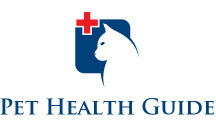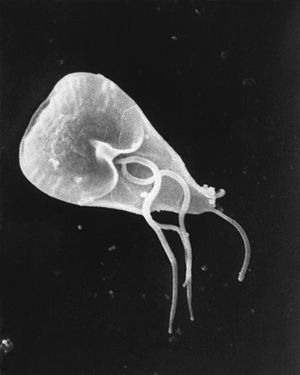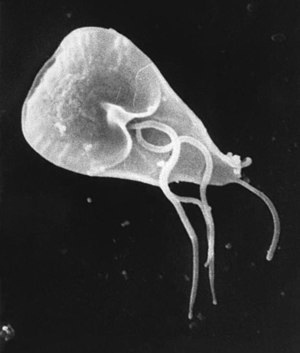Canine Giardia is a parasite primarily found in standing water, lakes and streams. A single cell parasite encased in a protective cyst passes from an infected dog through the feces. Surfaces that the feces touch become infected. When dogs lick these surfaces, or drink from contaminated water, the cysts enter the body, where the protozoa leave the cyst and attach themselves to the walls of the intestines. The infection primarily causes symptoms in puppies and older dogs.
Contents
Do Dogs and People Get The Same Type of Giardia Infection?
Giardia refers to multiple protozoa species. Not all types of giardia found in dogs will cause problems in people. There is one type of giardia that is found in humans but rarely effects dogs. The type that usually effects dogs is rarely found in humans.
Can Dog Giardia be Transmitted to Humans?
According to the U.S. Centers for Disease Control and Prevention, few direct animal-to-human outbreaks have been documented although linkages have been identified between canine and human transmission. It is more likely, although rare for human giardia to spread to dogs. Cat giardia is also species specific, with no documentation supporting that it spread to other species. That said, its’ a good idea to wear gloves when handling feces and to bag and dispose of any pet feces.
Dog Giardia Symptoms
Most dogs infected with giardia will be asymptomatic, meaning that they will show no clinical symptoms. The only sign of gi
Giardia will be cysts shed in the feces. In this case, the problem will only be diagnosed during routine care such as a fecal exam as part of a checkup. In dogs that show symptoms, the primary sign is persistent diarrhea that doesn’t seem to go away. Giardia is the cause of 15% of diarrhea cases. Other symptoms including vomiting, weight loss as the infection grows and steals nutrients from the body and lethargy. It is rare to see a bloody dog stool.
How Are Dogs Testing For Giardia
Dogs are diagnosed using several types of tests. These include:
- Feces smear test
- Saline preparation
- Fecal flotation
- Centrifugal fecal flotation
- Fecal Immunofourescense assay (IFA)
- Fecal antigen ELISA
- Fecal PCR Assay
All Dogs should receive a fecal centrifugal flotation test 1x a year to detect any roundworm or hookworm problems. If a dog is also suffering from diarrhea or vomiting, then it makes sense to combine this test with a Giardia antigen assay test.
Should Healthy Dogs In a Household Be Testing for Giardia If One Is Infected?
There is disagreement if all dogs in a household when one gets infected should be treated. The reason is that medications can have side effects and the human risk is considered low. That said, there is a long history of dogs being prescribed Febendazole, so it is reasonable for a Veterinarian to recommend that a dog takes this drug for 5 days.
Canine Giardia Treatment
It is impossible to know which medication will work since different Giardia species can react to one drug and not the other. For this reason a veterinarian may need to try more than one medication.
There are several prescription medications available to treat giardiasis. The most commonly used medications are Fenbendazole and Febantel. These are generally safe and without side effects. The medication Metronidazole (Flagyl) is also used, however it can have some side effects in some dogs, which is why it is often a second choice.
Some veterinarians will use a combination of fenbendazole and metronidazole, particularly if there is persistent diarrhea and the infection did not go away with the use of only one medication.
In addition to prescription medications, during recovery and to reduce the change of future outbreaks, a homeopathic such as Parasite Dr. can be used to strengthen the dogs natural defenses against Parasites. Giardia in dogs can cause death when causing clinical symptoms, so treatment is required.
To help restore digestive health after treatment with prescription medications have begun (3 to 7 days), a veterinarian might recommend adding fiber to the diet with a product like Natural Moves which contains the fiber Psyllium, and natural flora with a prebiotic/probiotic supplement.
After your dog has been diagnosed with giardia, be sure to bathe the dog to ensure that all cysts that may be trapped in the coat are removed.
Giardia Prevention
Giardia dog problems can be averted through improved hygiene. For example, only provide your dog fresh drinking water when walking outdoors. If your dog is allowed to run free in a backyard and go to the bathroom at will, be sure to clean up frequently to avoid exposure to feces. When visiting areas such as parks and dog runs, be aware of unhygienic conditions. Inspect kennels to ensure that proper sanitary conditions are maintained.
References
Treatment for Dog Giardia, Dog Health Guide
Symptoms of Dog Giardia, Dog Health Handbook



